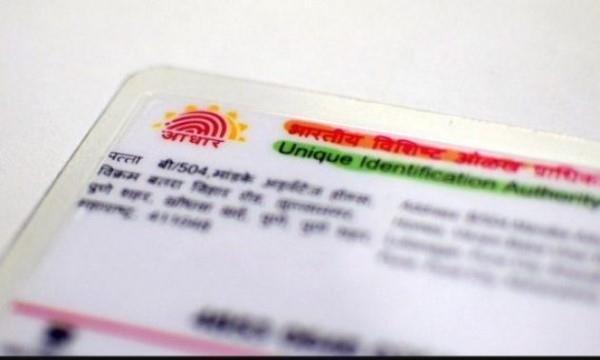
Supreme Court knocks out private sector from India's digital identity program
Data might be the "new oil," but India's Supreme Court isn't ready to hand it over to the private sector yet. In a judgment delivered last week over a bitterly contested digital identity program, the apex court struck down Section 57 of the identity law that allowed transfer of citizens' details to private entities.
The judgment passed by a five-judge bench had the majority of the judges upholding the constitutional validity of the digital identity project called Aadhaar. One judge passed a dissenting judgment that challenged the majority and called everything about the project and the way it was passed into law "unconstitutional." However, all the judges agreed that any attempt to pass on the data collected by the government could not be used by private companies.
The daily<> Must-reads from across Asia - directly to your inbox Citizens' data transfer unconstitutionalThis poses an immediate threat to a host of financial technology (fintech) companies that have banked on the Aadhaar ecosystem to build their businesses. Other private entities such as online travel and telecom companies have issued statements expressing their worry at this aspect of the Supreme Court's order.
Worried at the fallout, the government has been hemming and hawing on ways to get around this aspect of the judgment.
'My generic answer would be, on private entities, it needs to be backed by law. We have to see what is the rationale that they have given – that's my understanding. I have not had a detailed reading of the judgment yet," Finance Minister Arun Jaitley said soon after the judgment was passed.
His cabinet colleague Communications Minister Ravishankar Prasad even went a step further to point out that the Supreme Court had only disallowed passing on data under a contract. He felt that this would be allowed if there were legislative backing, and a fresh amendment by Parliament could fix this.
But legal experts are quite clear that this is certainly not the case. "Please read the judgment again. It is very clear that any … citizens' data collected by the government cannot be passed on to private companies. It is wholly unconstitutional," said legal researcher Usha Ramanathan. Her extensive work on the Aadhaar issue led to many of the petitions that were filed three years ago challenging the program.
She understands why the government is desperate to bring the private sector back into the Aadhaar program. "The Aadhaar program was built with the idea to pass on our data to private companies. They built the system using public money with private profit in mind. No law can now circumvent what the Supreme Court has labeled as unconstitutional," she told Asia Times.
Audit nightmare loomsWhile an association of fintech companies are planning to go back to the Supreme Court with a review petition and appeal this, chances are that this order is here to stay. But government officials are concerned with a much bigger and immediate problem at hand.
"The court has declared such a transfer of data as unconstitutional. The big problem for us right now is to figure out who is holding this data," a senior government official who tracks the Aadhaar program and related security issues told Asia Times.
"A little over a billion people have been enrolled into the Aadhaar program and many private companies used it to authenticate their customers. They are holding this data and we have no idea how to figure out how to deal with this."
The same official pointed out that some of the data such as biometrics of the customers was also captured by the private companies at their level. "Since they are storing this data now on their sources, we have no idea how to audit it, or even track it, let alone delete it."
In his dissenting judgment, Justice Dhananjaya Y Chandrachud not only declared any such transfer of data unconstitutional, he was also clear that in is opinion the whole program was illegal. The power of the Aadhaar project to enable mass surveillance has been well documented.
As other law experts have pointed out, while surveillance is a fact, the majority of the judges did not take it into consideration and merely accepted the submission of the government that it won't be used for that purpose. "To accept such a submission as a fact without questioning it was quite startlingly strange," another senior lawyer who was part of the case told Asia Times.
<> <> <> <> India Aadhaar UIDAI Supreme Court fintech telecom Unique Digital Identity Usha Ramanathan Nandan Nilekani justice DY Chandrachud biometrics Data Privacy Surveillance Comments
Legal Disclaimer:
MENAFN provides the
information “as is” without warranty of any kind. We do not accept
any responsibility or liability for the accuracy, content, images,
videos, licenses, completeness, legality, or reliability of the information
contained in this article. If you have any complaints or copyright
issues related to this article, kindly contact the provider above.


















Comments
No comment